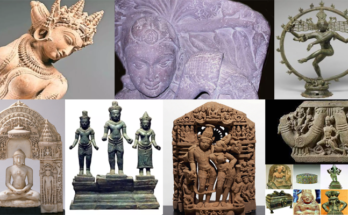
# COVID-19 likely to cool down in next three weeks in India
Ashis Sinha: Dr. Ranjit Shail, a Consultant Physician in Acute Medicine and Nephrology and Honorary Senior Lecturer at St. George’s University of London believes that the numbers of COVID-19 patients in India are likely to go up initially because of more testing, but should cool down within the next two-three weeks.
For the Indian perspective, WHO has praised the Indian Government’s efforts, efforts of ICMR and Department of Health and Research in curtailing the spread of Coronavirus, he said.
With a strict and successful lockdown, the morbidity and mortality (sickness and death) graph is likely to take a bell shape curve. In other words, as the numbers go down, the time taken to slow down would be about the time taken to the peak. This has been about three weeks, said Dr Ranjit.
He also considers that the Indian environment is not friendly for the Coronavirus. Many infectious diseases increase and decrease with a season as ‘flu’ usually comes in colder months while ‘typhoid’ and ‘measles’ in summer, said Dr. Ranjit over the phone.
Explaining the role of weather and incidence of Corona infection, he said, there is evidence that Corona and related virus survives longer at low humidity and low temperatures. They survive shorter in high humidity and temperature. Body temperature is about 37 degrees celsius while outside temperatures are usually much lower than this, he said.
“It should also be noted that people wear more clothes in winter, wash less, and have poor ventilation,” he added.
COVID-19 started in China in December and is receding as the temperature is going up. Most of the large outbreaks have been in regions where the weather is cooler. The spread of Corona around, the world seems to suggest it has a preference for cool and dry conditions. But it is notable that the virus has appeared in countries with a wide range of climates, including hot and humid, he said.
Research papers in China are suggesting that high temperatures and high relative humidity significantly reduce the transmission of COVID-19. This conclusion is consistent with the fact that high temperatures and high humidity significantly reduce the transmission of influenza. But scientists are not yet in agreement with this, said Dr. Ranjit.
We must remember that Corona spread is multifactorial. Overcrowding plays a significant role in the transmission of diseases with epidemic potential; outbreaks of disease are more frequent and more severe when the population density is high, he said.
Be careful with joint family overcrowding. Avoid crowded public areas including public transport, recreation. Keep good hygiene and wash hands regularly. Take extra precautions with older people in the family and those with medical conditions, he said.
As of now, there is no definite answer about the treatment options from COVID-19 though they are mainly supportive of treatment. The UK is producing more of smaller ventilators called CPAP machines. These are the smaller versions of actual ventilators to help deliver oxygen to lungs, said Dr. Ranjit adding “India has joined the International research teams in search of both vaccine and drugs for treatment.”
He said, about 10 years back there was the H1N1 influenza epidemic and there was also no definitive treatment. The influenza period lasted 2-3 months, and then disappeared spontaneously. “It was probably due to a herd or community immunity that developed over a period of time,” added Dr. Ranjit.
So what should the current strategy be? Gradually open up restrictions. Avoid overcrowding. Keep hand hygiene. Maintain social distancing, stop any kind of public gatherings, including sports and entertainment.
Dr. Ranjit Shail, a Xaverian from Ranchi, also associated with Jesuits from Jharkhand.




